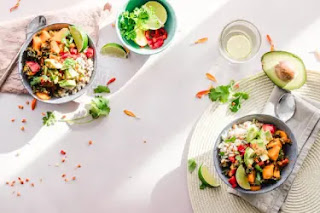10 Best Foods for Heart Health: Naturally Strengthen Your Heart
Heart disease is one of the leading causes of death worldwide. But here’s the good news: many heart problems can be prevented or managed through lifestyle changes—especially what you eat. A heart-healthy diet doesn’t mean bland food or strict limitations. In fact, many delicious and nutritious foods naturally protect your heart and help it function at its best.
Let’s explore the 10 best foods for heart health that can naturally strengthen your heart, lower your risk of cardiovascular disease, and boost your overall well-being.
1. Salmon and Other Fatty Fish
Fatty fish like salmon, mackerel, sardines, and tuna are rich in omega-3 fatty acids, which are known to reduce inflammation and lower blood pressure. Omega-3s can also reduce triglycerides, slow plaque buildup in arteries, and decrease the risk of arrhythmias (irregular heartbeat).
How to Enjoy:
Grill or bake salmon with lemon and herbs, add tuna to a salad, or try smoked mackerel on whole grain toast.
2. Berries
Blueberries, strawberries, raspberries, and blackberries are packed with antioxidants—particularly anthocyanins that help reduce oxidative stress and inflammation. They’ve also been linked to reduced LDL cholesterol and improved arterial function.
How to Enjoy:
Blend them into smoothies, add to oatmeal or yogurt, or snack on them fresh for a heart-healthy treat.
3. Dark Leafy Greens
Vegetables like spinach, kale, Swiss chard, and collard greens are nutritional powerhouses. They contain vitamin K, nitrates, fiber, and antioxidants, all of which contribute to improved blood vessel health and lower blood pressure.
How to Enjoy:
Toss greens into salads, stir into soups, or sauté with olive oil and garlic for a tasty side dish.
4. Nuts (Especially Walnuts and Almonds)
Walnuts are a great source of plant-based omega-3s, while almonds provide vitamin E, which may help prevent the development of plaque in arteries. Nuts also offer fiber, magnesium, and unsaturated fats—all good for heart health.
How to Enjoy:
Eat a handful as a snack, sprinkle on salads, or add to yogurt and oatmeal. Choose unsalted and unroasted nuts to avoid added sodium and oils.
5. Avocados
Avocados are rich in monounsaturated fats that can help lower LDL (bad) cholesterol while boosting HDL (good) cholesterol. They also contain potassium, an important mineral for controlling blood pressure.
How to Enjoy:
Spread on whole grain toast, add slices to salads and sandwiches, or blend into a creamy smoothie.
6. Whole Grains
Unlike refined grains, whole grains like oats, brown rice, quinoa, barley, and whole wheat retain their natural fiber and nutrients. The soluble fiber in oats, for example, can help lower cholesterol levels and support stable blood sugar levels.
How to Enjoy:
Start your day with oatmeal, use brown rice or quinoa as a side dish, and choose whole grain bread or pasta whenever possible.
7. Beans and Legumes
Black beans, lentils, chickpeas, and kidney beans are loaded with fiber, plant protein, and important minerals like magnesium and potassium. They help lower cholesterol, regulate blood sugar, and reduce blood pressure.
How to Enjoy:
Add beans to soups, stews, tacos, or salads. Make a bean dip for a tasty and filling snack.
8. Dark Chocolate (in Moderation)
High-quality dark chocolate (70% cocoa or more) is rich in flavonoids—antioxidants that can reduce inflammation, improve blood flow, and lower blood pressure. Just be careful with portion sizes and added sugar.
How to Enjoy:
Break off a square or two after dinner or melt it and drizzle over fruit for a guilt-free dessert.
9. Green Tea
Green tea is packed with catechins, a type of antioxidant that improves blood vessel function and reduces cholesterol. Drinking green tea regularly has also been associated with a lower risk of heart disease and stroke.
How to Enjoy:
Swap your morning coffee for green tea or sip a warm cup in the afternoon for a gentle energy boost and heart benefits.
10. Olive Oil
A key component of the Mediterranean diet, extra virgin olive oil is rich in monounsaturated fats and polyphenols, which help reduce inflammation and protect arteries. Regular consumption has been linked to a reduced risk of heart disease.
How to Enjoy:
Drizzle over salads, use as a base for homemade dressings, or sauté vegetables in olive oil instead of butter.
Bonus Tips for a Heart-Healthy Lifestyle
Eating these 10 heart-healthy foods is a great start, but your overall lifestyle matters too. Here are a few bonus tips to support your cardiovascular system:
-
Stay active: Aim for at least 30 minutes of moderate exercise most days of the week.
-
Don’t smoke: Smoking damages your blood vessels and raises your risk of heart attack and stroke.
-
Manage stress: Chronic stress can negatively affect heart health—try meditation, deep breathing, or yoga.
-
Sleep well: Aim for 7–9 hours of sleep each night for optimal body function.
-
Limit processed foods: Avoid foods high in sodium, sugar, and trans fats.
Final Thoughts
Your heart is at the center of your health—literally and figuratively. The choices you make every day, especially what you put on your plate, play a major role in protecting your heart and preventing disease. Fortunately, many of the best foods for heart health are also some of the most delicious and satisfying.
From rich and fatty salmon to crunchy nuts, antioxidant-rich berries to calming green tea, building a heart-friendly diet doesn’t have to be complicated. Focus on whole, natural foods, reduce processed options, and stay consistent. With these powerful foods in your daily routine, your heart will thank you with every beat.






0 Comments